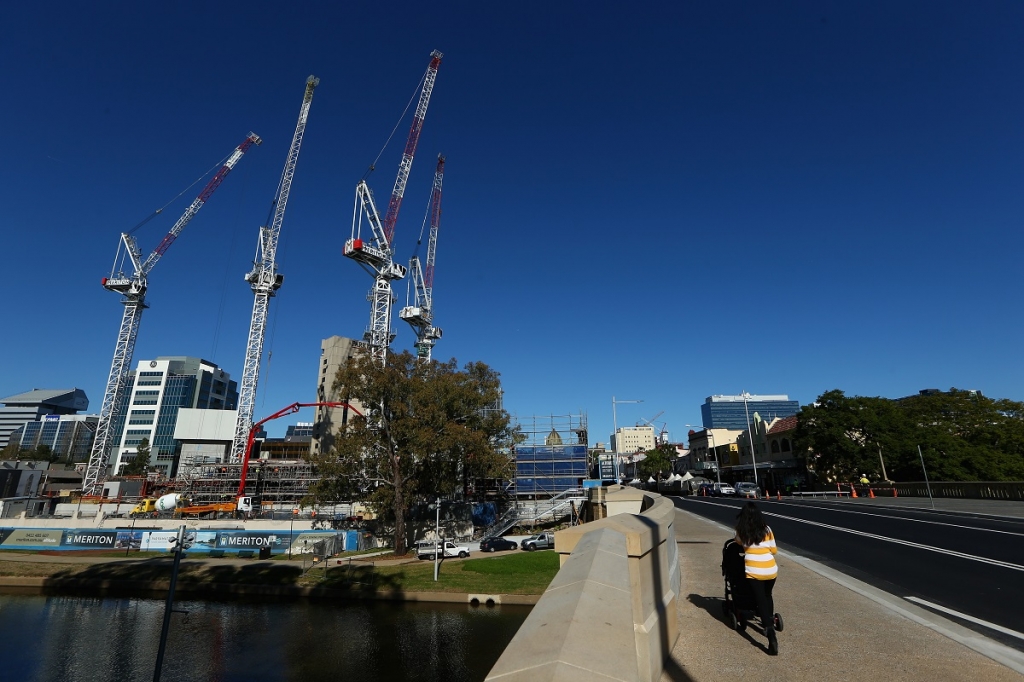-
Tips for becoming a good boxer - November 6, 2020
-
7 expert tips for making your hens night a memorable one - November 6, 2020
-
5 reasons to host your Christmas party on a cruise boat - November 6, 2020
-
What to do when you’re charged with a crime - November 6, 2020
-
Should you get one or multiple dogs? Here’s all you need to know - November 3, 2020
-
A Guide: How to Build Your Very Own Magic Mirror - February 14, 2019
-
Our Top Inspirational Baseball Stars - November 24, 2018
-
Five Tech Tools That Will Help You Turn Your Blog into a Business - November 24, 2018
-
How to Indulge on Vacation without Expanding Your Waist - November 9, 2018
-
5 Strategies for Businesses to Appeal to Today’s Increasingly Mobile-Crazed Customers - November 9, 2018
RBA leaves cash rate on hold at 2% for November
The Reserve Bank kept the cash rate unchanged for the sixth consecutive month on Tuesday and gave an upbeat assessment on the Australian economy but also said that very weak inflation will give it scope to cut the rate if need be.
Advertisement
During a meeting this week, the Reserve Bank of Australia (RBA) chose to keep the cash rate fixed at 2.0%.
Inflation concerns, or rather a lack of inflation, were seemingly downplayed in the Reserve Bank of Australia’s latest statement accompanying its decision to maintain the cash rate at 2.0%. Australia’s huge tourism sector, thanks to the lower dollar, is booming.
While all four major banks raised their owner-occupier rates last month, 24 of the 30 economists and commentators surveyed by finder.com.au had expected the cash rate to remain on hold. Interbank futures imply a one-in-three chance of a cut, from two-in-three before the RBA. The Australian reports that Westpac, NAB and ANZ cut 2,400 full time employees during the six months to September 30.
“Rate cuts are not imminent”, said Peter Jolly, the head of market research in Sydney at National Australia Bank Ltd., the country’s largest lender by assets. In terms of what was new in the RBA commentary, UBS notes the central bank appears more confident in a European recovery and comfortable with the increase in mortgage rates by the major banks.
Should economic data come in below expectations then the RBA will confirm their easing bias confirming to us that on balance the easiest path for the Aussie is lower.
Property academic and author Peter Koulizos predicted that rates would remain on hold for November, but warned that a further increase to unemployment figures would likely trigger a future cut to rates.
The Australian dollar initially spiked to 72.04 USA cents when the decision was announced, though it fell to 71.62 United States cents as Stevens’ comments were digested. There’s been a vigorous debate, both in policy and academic circles, about whether central banks should be concerned with asset price inflation and excessive credit growth and whether they should use interest rates to prevent asset price price bubbles from becoming too large.
Advertisement
In Singapore trade at around 0620 GMT, the U.S. dollar was down against the Singapore dollar, Taiwan dollar, South Korean won, Philippine peso, Indonesian rupiah, Indian rupee, Chinese yuan, Malaysian ringgit and Thai baht.





























